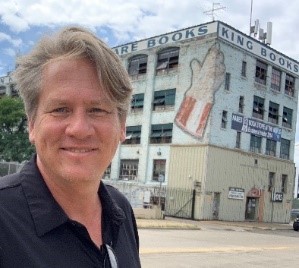2022 Alumni College Fellows
The Humanities Center at Texas Tech Announces its Alumni College Fellows for 2022-2023.
Established in 2015, Alumni College Fellowships provide funding for individual scholarly projects.
Homecoming Week on the Texas Tech campus has included the Humanities Center's annual Alumni College event for the past five years. Alumni College showcases the excellent research of Texas Tech humanities scholars. Each year, the Humanities Center selects up to twelve fellows, who receive funding and who present their work at Alumni College.
Dr. John Beusterien (Department of CMLL)
John Beusterien was born in Detroit, Michigan, and received a B.A. and M.A. from the University of Michigan (Ann Arbor). Beusterien has worked at Texas Tech University for seventeen years. Before Texas Tech, Beusterien taught at Albion College (Michigan), Colby College (Maine), and the University of Miami (Florida). He serves as the managing editor of Cervantes: Bulletin of the Cervantes Society of America. Current publications focus on the environmental humanities and classical Spanish theater. He is also developing Lubbock Waters to educate about the ecosystem of the southern high plains. Beusterien also writes poetry and short stories.
Project: "The Gawkers"
This project entails the continuation of an ongoing collaborative project related to African slaves and people of African descent living in early modern Seville. It focuses on the classical Spanish play Los mirones / The Gawkers. I discuss the collaborative project which is working toward the publication of the first Spanish and English edition of the play. I also discuss its Summer 2022 staging in London and Almagro (Spain) and look toward a production of the play in Lubbock in the Spring of 2023. I pay attention to the importance of 1619, the approximate date of the play, in order to contextualize the importance of the play for U.S. English-speaking audiences because the history of slavery and African descendants in the U.S. context shares important links to Iberia and the early modern Spanish and Portuguese-speaking world.
Dr. Ali Duffy (School of Theatre and Dance)

Ali Duffy is a President's Excellence in Teaching Professor, Associate Head and Professor of Dance and Honors, and Graduate Dance Director at Texas Tech University. She is the founder and Artistic Director of Flatlands Dance Theatre (www.flatlandsdance.org) and a co-founder of the International Alliance for Parents in Dance. She holds a PhD in Dance from Texas Woman's University, an MFA in Choreography from the University of North Carolina at Greensboro, a BA in Dance from the University of North Carolina at Charlotte, and a Professional Certificate in Online Education from the University of Wisconsin Madison and is also working toward Stott Pilates Reformer certification.
Project: “Surfing the Raging Sea: Stories of Pregnancy, Parenting, and Motherhood in Dance During a Pandemic”
During the COVID-19 pandemic, pregnant people and mothers in the United States have faced untenable conditions as they grapple with simultaneous professional and personal demands without access to adequate financial, career, or caregiving support. These simultaneous demands are not new to women, but the pandemic set inequities between working mothers and childfree workers and between women and men in even starker contrast. This article explores responses from 110 (self-identified) women participants about how their role of mother has changed, how their professional and personal lives have changed, how they have adapted to the pandemic era, and what kinds of support have or would have been helpful during this time. The participants' words point to areas of positive benefit and areas of needed growth and change in dance industries and workplaces and reframe the ways we construct our ideas of motherhood and expectations of mothers. I centralize their experiences for the benefit of everyone working in dance so that we may support each other in a revolution of dance as an inclusive, accessible, diverse field of equity and opportunity.
Dr. Min-Joo Kim (Department of English)
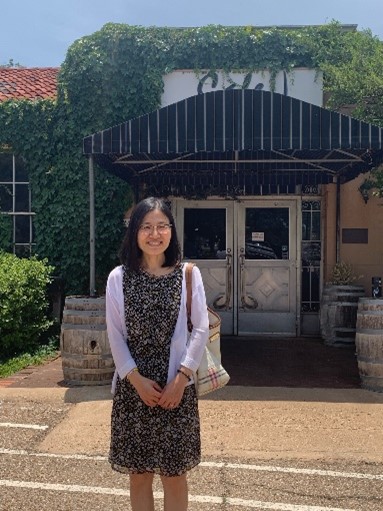
Dr. Kim specializes in theoretical syntax, semantics, and their interface. She also has secondary research interests and expertise in language acquisition, pragmatics, and grammaticalization. She has worked on various linguistic phenomena including Noun Modification, E-type Anaphora, Existential Sentences, Free Choice, Implicature, Aspect, and Evidentiality. She has over 30 publications including four books (e.g., The Syntax and Semantics of Noun Modifiers and the Theory of Universal Grammar, 2019, Springer), and her work has appeared in prestigious journals like Linguistic Inquiry, Studies in Language, Natural Language and Linguistic Theory, Natural Language Semantics, the Journal of English Linguistics, Language Research, and the Journal of Cognitive Science. She was a 2019 Integrated Scholar and 2021 President's Faculty Book Award recipient at TTU, and was an Associate Editor for the high-impact Open Access journal Glossa: a journal of general linguistics.
Project: "Anaphoric Definiteness Marking in Article-less Languages"
Some languages have definite articles (e.g., English), but some do not (e.g., Mandarin Chinese). Given this, a natural question that arises is: how do languages lacking definite articles express the full gamut of meanings that would be expressed by English the? This project aims to help answer this question by looking at five genetically unrelated article-less languages in comparison to English. The prediction is that, in marking anaphoric definiteness, article-less languages will employ bare nouns to encode what I call situation-internal reference, and demonstratives (e.g., words that correspond to English this or that) to encode what I call situation-external reference.
Dr. Callie Kostelich (Department of English)
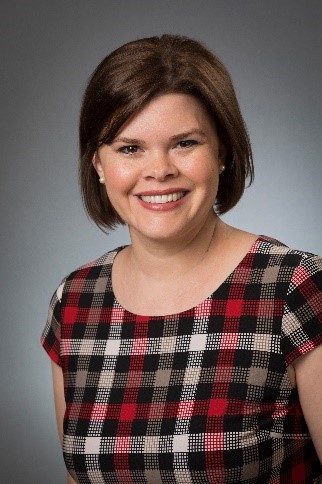
Dr. Callie F. Kostelich is an assistant professor in the Technical Communication and Rhetoric program at Texas Tech, and she is the Writing Program Administrator for First-Year Writing. Callie teaches courses in composition theory and methods, and her research interests include rural literacies, feminist rhetorics, and first-year writing. She has chapters on rural literacies in Veg(etari)an Arguments in Culture, History, and Practice: The V Word and Food Justice Activism and Pedagogies: Literacies and Rhetorics for Transforming Food Systems in Local and Transnational Contexts. She also has two collaborative pieces--feminist mentorship in graduate education and piloting language autoethnographies in FYW—currently under review. Callie continues to work on her book project, Sponsoring Agricultural Literacy: Literacies, Ideologies, and the FFA.
Project: “Emotions and Empathy: Positioning Researcher Identities in the Study of Religious Rhetoric”
Scholars of indigenous rhetorics, cultural rhetorics, and feminist rhetorics remind us that academic research is not a disembodied, intellectual experience; we are becoming increasingly aware of the perils of assuming that researchers can check their identities and experiences at the door (Ryan and Natalle 2001; Bizzell 2002; Agboka 2014; Cobos et al. 2018). We know that “supposedly objective research in each field” has been used to silence and subjugate marginalized populations (Kirsch and Royster 2012). For all scholars, but particularly for those who study religious rhetorics, our goal is not to claim a research stance that is void of identities—personal, professional, visible, invisible—but to acknowledge that all identities carry with them “experiential knowledge” and can serve as a basis that propels important, diverse scholarship (Glenn 2018). It is in this context that I situation my talk, “Emotions and Empathy: Positioning Researcher Identities in the Study of Religious Rhetorics.” I will share my 2016 research project on evangelical women writers and the experience(s) I had in my personal life during this same time period that caused me to halt the research. It is only now, years later, that I have returned to the project, considering both the content of the project and my positionality to it, the latter of which has become a separate, yet connected area for investigation. Using my own story as evidence, I contemplate how scholars might resist the flattening effects or "impoverished forms of academic discourse" (Gere 2014) and how our “robust emotional connection(s)” (Mountford 2003) provide viable avenues for situating how identities affect and shape ongoing religious rhetorical research (Mannon 2019). Ultimately, I propose that there is value in talking about our positionality not only in terms of why and how we approach a project but, also, in terms of the emotional weight that it takes to do the work and to reconcile our researcher-selves with our lived experiences.
Dr. Bruno Penteado (Department of CMLL)
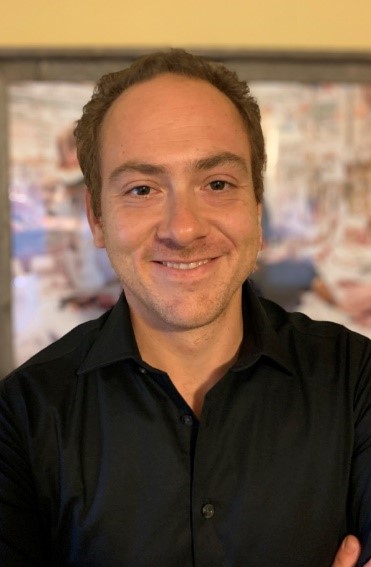
My research is mainly concerned with 18th- and 19th-century French literature, continental philosophy, and the intersections of literature and philosophy. I am also interested in literary and critical theory, intellectual history, and film studies. My current book project Wishing to Conclude: Stupidity, Philosophy, and the French Novel investigates the legitimization of stupidity as an object of philosophical inquiry in 20th-century and contemporary French philosophy and suggests that such conceptualization is highly indebted to the French novel. My work has appeared in such journals as Qui Parle: Critical Humanities and Social Sciences, Mosaic: An Interdisciplinary Critical Journal, Nineteenth-Century French Studies, and Forum for Modern Language Studies, among other venues.
Project: "Sartre's Stupidity"
This talk is part of my book project Wishing to Conclude: Stupidity, Philosophy, and the French Novel, which I expect to complete by next summer. In this manuscript I consider how stupidity becomes a legitimate philosophical problem in French philosophy from the mid 20th century onward, a tendency that continues to this day. I suggest, furthermore, that the philosophical thinking of stupidity in France in fact depends significantly on an engagement with French literature, particularly the 18th- and the 19thcentury novel. By juxtaposing the works of philosophers and novelists, I propose an understanding of stupidity that becomes indissociable from discourses on reason and rationality that start taking shape during the Enlightenment.
Dr. Ben Poole (Department of History)
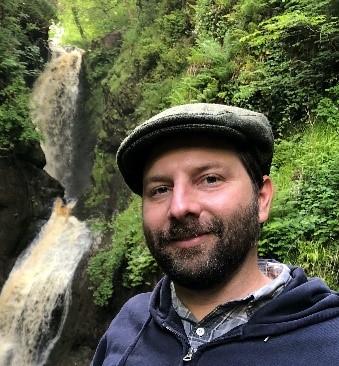
Ben Poole is a specialist in the history of twentieth-century Europe as well as global history and popular culture. His current research explores how food helps construct national identities in the global age. His dissertation, “French Taste: Food and National identity in Post-colonial France,” examines how transnational political and social relations have shaped the meaning of “French food” in contemporary popular culture and mass media both in and outside of France. Dr. Poole also brings a global approach and an interest popular culture to his teaching, which includes courses on modern Europe, social and cultural history, and the history of racism and nationalism.
Project: "Paris, Capital of Gastronomy"
Paris has often been seen as the cultural, social, and intellectual “capital” of much more than France. Nowhere has the Paris-as-France-as-center-of-the-universe myth been more palpable than gastronomy. Grimod de la Reynière boasted that his city was “the place in the universe where the finest food is made and the only one capable of providing excellent cooks to all the civilized nations of the world.” Even the ever-dubious Mark Twain could be charmed by Paris restaurants, where “everything was so tidy, the food so well cooked, the waiters so polite, and the coming and departing company so moustached, so frisky, so affable, so fearfully and wonderfully Frenchy!” In recent decades, the city's reputation as a culinary hotspot has waned, as McDonald's and kebab shops (supposedly) replaced traditional bistros. Still, Paris remains deeply ingrained in our gastronomic imagination, with the popularity of Julia Child's memoir, My Life in France, or the 2007 Disney blockbuster, Ratatouille. This project traces the history and myth of Paris's rise and decline as the world's “capital of gastronomy.”
Dr. Brendan Regan (Department of CMLL)

I am an Assistant Professor of Hispanic Linguistics at Texas Tech University and the Director of the Texas Tech Sociolinguistics & Bilingualism Research Lab. I also serve as the Coordinator of Hispanic Linguistics (undergraduate and graduate programs). My research and teaching interests include sociolinguistics, sociophonetics, phonetics & phonology, language attitudes & language ideologies, bilingualism, SLA & study abroad, dialects/languages in contact, and variational pragmatics. I utilize a range of quantitative experimental methods for production and perception data (sociolinguistic interviews, laboratory approaches, corpora data, matched-guise experiments, forced-choice experiments, etc.) and statistical analyses. I also employ mixed-methods utilizing qualitative discourse analysis to complement quantitative analyses.
Project: "The effect of study abroad on the production and perception of language-specific allophones by L2 and heritage Spanish speakers studying abroad in Sevilla"
Of recent there has been an increase in examining the effect of study abroad on language acquisition in production. However, within the study abroad literature, few studies have analyzed phonetic perceptual acquisition, examined the role of linguistic proficiency, or included heritage speakers. This project addresses these gaps by conducting a production (speaking) and a perception (listening) experiment on Spanish-English language-specific allophonic differences with L2 and heritage Spanish speakers studying abroad in Sevilla. This study sheds light onto which factors (linguistic proficiency, attitudes, type of bilingualism) lead to larger language-specific allophonic changes in the study abroad context as well as the relationship between phonetic perception and production.
Dr. Ben Rogerson (Department of English)
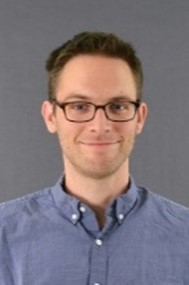
Rogerson specializes in Hollywood cinema and post-1945 American literature, with a focus on how social, political, and economic conditions shape aesthetic production. His teaching has included courses on film analysis, the history of film, New Hollywood cinema, and the political economy of U.S. literature. His current research projects include a study of 1970s Hollywood cinema as a self-reflexive endeavor to reconstruct the social legitimacy of film as a profession, as well as a study of the widespread political miscalculation made by midcentury artists who mistook conformity as the central dilemma of American capitalism.
Project: “What Was Professionalism in New Hollywood Filmmaking?”
My talk for the Humanities Center provides an overview of Against Auteurism: Professional Filmmaking in New Hollywood, my manuscript-in-progress. This book project explores 1970s New Hollywood cinema as a reflexive endeavor to define the profession of filmmaking within an industry that was undergoing vertical disintegration, corporate conglomeration, and economic recession. My focus diverges from the main thrust of scholarship on New Hollywood, which focuses too narrowly on the professional prerogatives of the so-called auteur directors (Coppola, Hopper, De Palma, etc.) and, as such, too often tells a shopworn tale about the tragic triumph of capital over art. Against Auteurism instead examines films that allegorize the professional ethe of the so-called hacks, or the other factions of New Hollywood filmmakers who did not share the auteurs' professional-cum-aesthetic sensibilities. Unlike the New Hollywood auteurs, whose films about plucky independents crushed by behemoth organizations allegorize antagonisms between capital and labor, these “hack” factions imagine the aspiration to occupational autonomy in ways that variously reconfigure professionalism's relationship to consumer markets, managerial hierarchies, and the corporate form itself. The overview of the project concludes with a finer-grained examination of what I call “emulative professionalism” in the films of the aging studio-era directors whose careers lingered into the 1970s. Conspicuously old-fashioned films such as Fedora (Wilder, 1978) and A Matter of Time (Minnelli, 1976) presume to remedy the excesses of studio avarice and consumer ignorance by showing young filmmakers how to revive the competitive spirit of studio-era production cultures.
Dr. Daniel Schindler
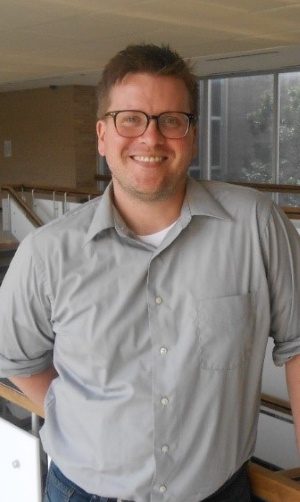
Project: "Continuity and Change: the Ceramic Corpus of Late Roman Galilee"
This project analyzes the ceramic corpus from the Late Roman and Byzantine (ca. 4th century to the 7th century CE) site of Huqoq: an eastern Galilean Jewish village. Huqoq will be used as a case-study to examine questions about cultural change and the complex interplay between historical and archeologically based interpretations of the ancient world. The project will provide an analysis of the Late Roman and Byzantine common pottery corpus from Huqoq in Galilee and lays the groundwork for socio-economic research in the region on a local and international scale
Dr. Yuan Shu (Department of English)
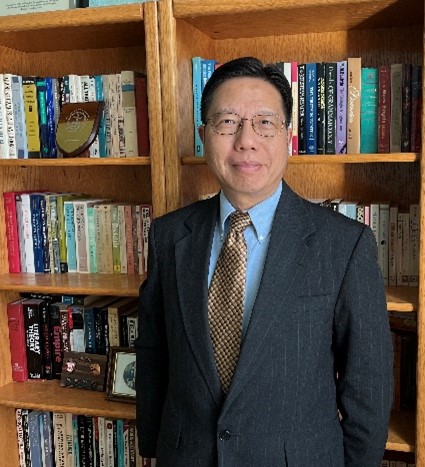
Dr. Shu specializes in contemporary American literature and comparative literature with an emphasis on transpacific American literature, post 9/11 American literature, postmodern American literature, Vietnam War literature, and Asian American literature. His research interest includes transpacific American studies and globalization theory, technology and discourse, as well as critical and comparative race studies.
Project: "Negotiating the Technological Empire: Technology, Racial Formation, and Transpacific Chinese American Life Writing"
In this study, I investigate why and how science and technology have played a critical role in determining racial construction and Chinese American formation in the United States. By “negotiating the technological empire,” I first seek to examine how science and technology as a material force and a cultural discourse have been articulated with race as manifested in what Donald Pease calls US exceptionalism, from the “manifest destiny” in the westward movement in North America and the “civilizing mission” in East Asia in the nineteenth century to “market democracy” and “human rights” in the post-Soviet US-centered global order in the Asia Pacific in the twenty-first century. By “negotiating the technological empire,” I also explore what Patrick Wolfe calls “elementary structures of race” with special attention to the role of Chinse Americans in US settler colonialism and imperialism. In engaging what Lisa Lowe theorizes as “immigrant acts” and recently develops as the “intimacies of four continents,” which analyze Asian American formation comparatively in both the US and global contexts, and which critique enslavement of Africans, expropriation of indigenous land, and importation of indentured Asian labor as the precondition of Western liberalism, I discuss why early Chinese American authors represented their identities with a vested interest in China's modernization process in the late nineteenth and early twentieth centuries and how Chinese Americans continue to challenge the representational shift of Chinese and Chinese Americans from “cheap labor” to “high-tech spies” in the US media in the twenty-first century. By “negotiating the technological empire,” I finally examine how Chinese American authors, immigrants particularly, employ life narratives as an expanded genre arising from the Western Enlightenment project, which encompasses autobiography, autoethnography, and psychobiography, to articulate their own identities and ethnicity and appropriate its formalistic implications and philosophical underpinnings in a transpacific context.
Dr. Maia Toteva (School of Art)
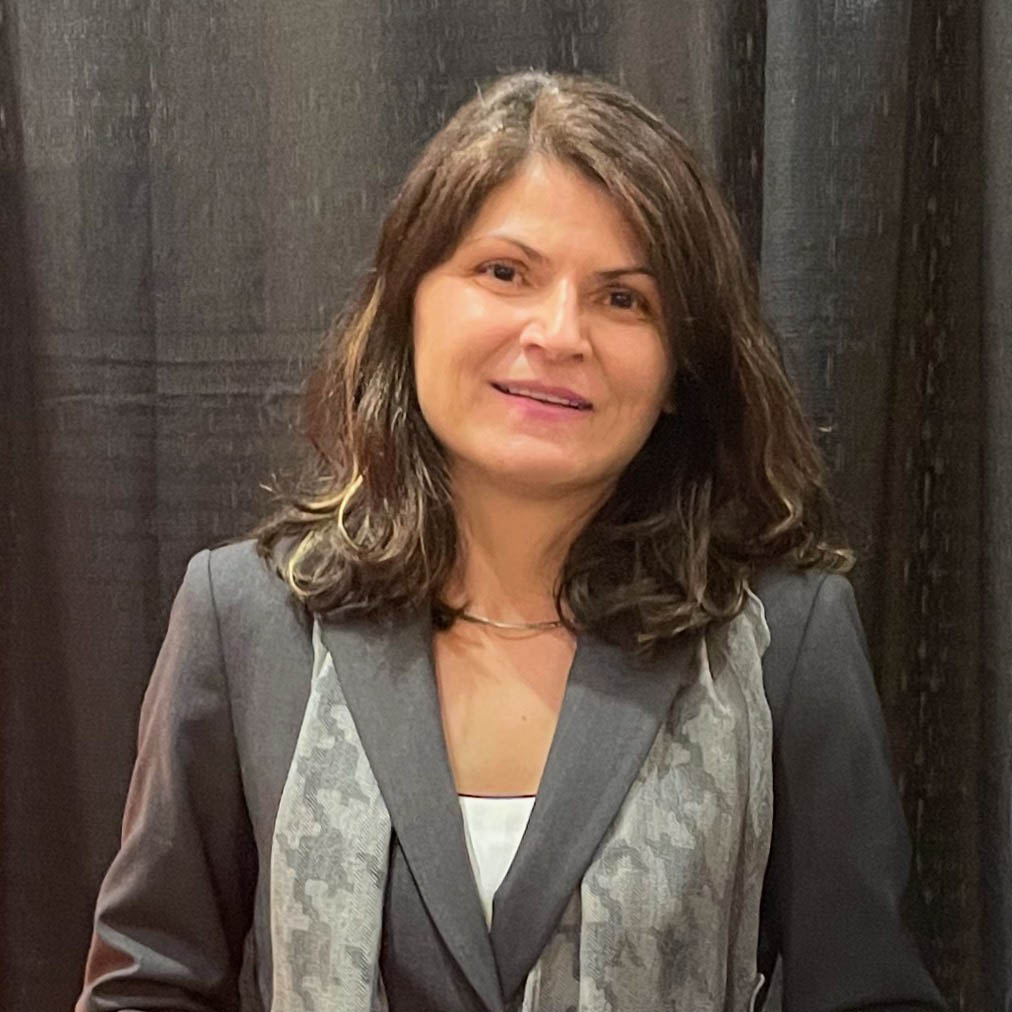
Maia Toteva is Assistant Professor of Global Art and Visual Culture at Texas Tech University's School of Art. Her background and research interests are transcultural and interdisciplinary. She holds an MA in Philology (languages, literatures, and linguistics), an MA in Art History (medieval art), an ABD in Comparative Literature (Western European and Japanese literatures), and a PhD in Art History (contemporary art). Before joining the faculty at TTU, she was a Visiting Professor of Art History at Montana State University and Assistant Professor of Art History at University of Cincinnati, Blue Ash College. Dr. Toteva's teaching and research span the fields of art history, art education, literature, and pedagogy. Her current projects interrogate the intersections of global contemporary art, language, science, and critical methodologies, with a particular emphasis on the entanglements of politics, identity, and ideology in the theory and practices of visual representation. She has published on topics ranging from Russian culture, Slavic Literatures, and contemporary art to futurist pedagogies, feminism, and hybrid learning. Her monograph on the linguistic branch of the global conceptual art movement is forthcoming in 2023. She is also co-editor of a volume on subversive mimicry in global contemporary art, forthcoming in 2023. Dr. Toteva is the recipient of numerous fellowships, including those granted from the Smithsonian Institution, the Council of European Studies, Volkswagenstiftung, and the Menil Foundation. In 2022, she received a New Faculty Award by the Texas Tech Alumni Association and the College of Visual and Performing Arts.
Project: "The Art of Subversive Mimicry: How Insurgent Artists and Alliances Reclaimed the Language of Power"
In moments of ideological crisis, artists and performers often turn to creating insurgent mirror images to communicate their counterpoints and truths. Alliances such as Chto Delat in Russia, NSK in Slovenia, Orange Alternative in Poland, or The Yes Men in the US and figures such as Stephen Colbert and Hank Willis Thomas have responded to political oppression not by direct opposition, but by coopting and speaking its language of power. The limited literature on the subject has traced the genesis of the artistic practice back to the last Soviet avant-gardes and the group OBERIU, while scholars have focused their attention on the use of “overidentification” in the performances of European art collectives. Connected with a forthcoming book on the subject, my project situates this approach in global contemporary culture and defines it as “subversive mimicry”—an anti-subordination technique that targets the system from within by imitating its rituals, symbols, and structure and dismantling its rationalizations of power, including ideology and propaganda. Drawing a trajectory from the historical avant-gardes to nonconformist action and installation, I will explore the philosophical underpinnings of subversive mimicry as an anti-domination strategy in the works of contemporary conceptual and performance artists. At a time when little agreement exists on the boundaries between truth and lies, efforts to oppose falsehood with facts in the public sphere often seem futile and self-defeating. Turning to artistic mimicry as a response to the politicization of truth in everyday life, these insurgent tactics offer an indispensable and enlightening glimpse into the counterculture and politics of the new post-Truth Era.
Dr. Meixiu Zhang (Department of CMLL)
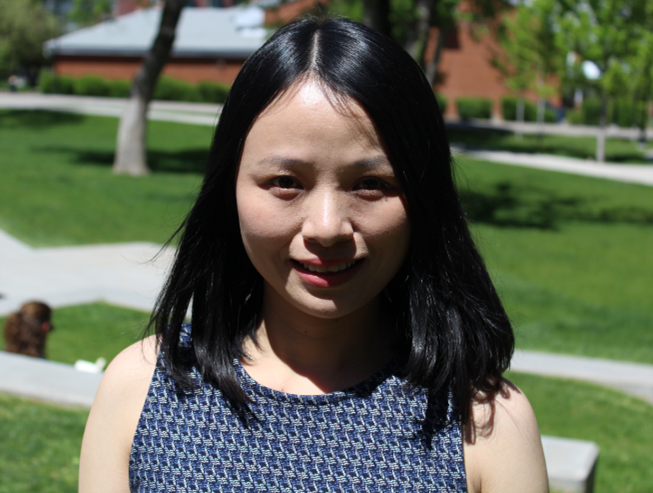
Meixiu Zhang is Assistant Professor of Applied Linguistics and Second Language Studies in the Department of Classical and Modern Languages and Literatures at Texas Tech University. Dr. Zhang is also responsible for directing the Japanese and Korean programs in the department. Dr. Zhang's research interests are second language (L2) pedagogy, L2 writing, and corpus linguistics. In particular, her research focuses on understanding the potential of collaborative tasks in L2 classrooms, exploring language variation through corpus methods, and promoting the synergy between corpus linguistics and classroom-based research. At TTU, Dr. Zhang teaches courses such as Corpus Linguistics for Research and Teaching, Instructed Second Language Acquisition, and Using Technology to Understand Language.
Project: "How to make language studies accessible: A linguistic perspective"
While language studies have implications for various real-world issues, scholarly work in language studies has difficulty reaching the wider public due to low readability and limited conceptual accessibility, which impedes the dissemination of knowledge and potentially aggravates social inequality. The field of language studies has recently started an initiative to urge scholars to publish accessible summaries of research reports. However, little has been researched on how scholars reshape the descriptions of language studies to make them more accessible to the wider public. This project fills this gap by analyzing two large collections of texts (i.e., accessible summaries of language studies and journal article abstracts ) from a corpus linguistic perspective.
Humanities Center
-
Address
Texas Tech University, 2508 15th Street, Weeks Hall 221, Lubbock, TX 79409-1002 -
Phone
806.742.3028 -
Email
humanitiescenter@ttu.edu

